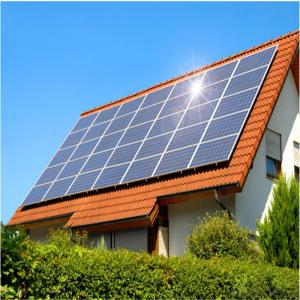Solar Pumps: A Game Changer in Water Management
Water is life, and managing it efficiently is crucial for the survival of our ecosystems and communities. But what if there’s a way to move water without relying on traditional energy sources? Enter solar pumps, the eco-friendly solution that’s not only good for the environment but also for your wallet. In this article, we’ll explore the benefits of solar pumps, how they work, and why they’re a game changer in water management.
The Power of the Sun
Solar energy is a renewable resource that’s abundant and free. Harnessing the power of the sun to move water is a smart move for anyone looking to reduce their carbon footprint and energy bills. Solar pumps use photovoltaic (PV) panels to convert sunlight into electricity, which then powers the pump. This process is not only clean but also incredibly efficient.
Eco-Friendly and Cost-Effective
One of the main advantages of solar pumps is their eco-friendliness. They produce zero emissions, which means no greenhouse gases are released during operation. This is a significant benefit for those who are environmentally conscious and want to contribute to a healthier planet. Additionally, solar pumps are cost-effective in the long run. While the initial investment may be higher than traditional pumps, the savings on energy bills and the lack of maintenance costs make them a wise investment.
Versatility in Applications
Solar pumps are versatile and can be used in various applications, from agricultural irrigation to residential water supply. They are ideal for remote areas where access to electricity is limited or non-existent, making them a reliable solution for off-grid living. In agriculture, solar pumps can help farmers save on water and energy costs, leading to increased crop yields and a more sustainable farming practice.
Low Maintenance and Longevity
Another great aspect of solar pumps is their low maintenance requirements. Since they have fewer moving parts than traditional pumps, they are less prone to breakdowns and require less frequent servicing. This not only saves time but also money on maintenance costs. Moreover, solar pumps are built to last, with a lifespan of up to 25 years or more, depending on the quality of the components and the care taken to maintain them.
The Future of Water Management
As the world moves towards more sustainable and eco-friendly practices, solar pumps are poised to play a significant role in the future of water management. They offer a clean, efficient, and reliable way to move water, making them an attractive option for both individuals and businesses. With advancements in solar technology and increasing awareness of the environmental impact of traditional energy sources, solar pumps are becoming more popular and accessible.
Embracing the Solar Revolution
So, how can you embrace the solar revolution and start using solar pumps for your water management needs? Here are a few steps to consider:
1. Assess your water needs: Determine the volume of water you need to move and the distance it needs to be transported. This will help you choose the right size and type of solar pump for your requirements.
2. Choose the right solar pump: With various models available in the market, it’s essential to select a pump that suits your needs and budget. Consider factors such as flow rate, head height, and compatibility with your existing water system.
3. Install the solar panels: Proper installation of solar panels is crucial for optimal performance. Ensure they are positioned to receive maximum sunlight and securely mounted to avoid damage.
4. Monitor and maintain: Regularly check the performance of your solar pump and address any issues promptly. This will help ensure the longevity and efficiency of your system.
5. Spread the word: Share your experience with solar pumps and encourage others to consider this eco-friendly option for their water management needs.
In conclusion, solar pumps are a game changer in the world of water management. They offer a sustainable, efficient, and cost-effective solution to moving water, making them an excellent choice for anyone looking to reduce their environmental impact and save on energy costs. By embracing solar technology, we can contribute to a healthier planet and a brighter future for generations to come.

